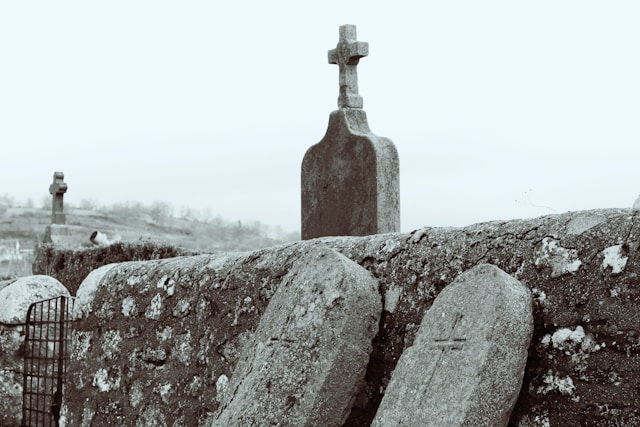The First and Second Death in the Bible: A Comparative Analysis
The Bible speaks of two distinct kinds of death: the first death and the second death. Understanding these concepts is crucial for grasping the full scope of biblical teaching on life, death, and eternity. This article explores the nature, significance, and implications of the first and second deaths as described in the Bible.
The First Death
The first death refers to the physical death that all humans experience. This death is a universal reality and a direct consequence of sin. The Bible traces the origin of physical death to the fall of humanity in the Garden of Eden.
Nature of the First Death: The first death is characterized by the cessation of physical life. In Genesis 2:16-17, God warns Adam, “You are free to eat from any tree in the garden; but you must not eat from the tree of the knowledge of good and evil, for when you eat from it you will certainly die.” This death is both immediate in its spiritual impact and eventual in its physical manifestation.
Significance: The first death serves as a reminder of the broken relationship between God and humanity due to sin. Romans 5:12 explains, “Therefore, just as sin entered the world through one man, and death through sin, and in this way death came to all people, because all sinned.” It underscores the need for redemption and the hope of resurrection.
Implications: For believers, the first death is not the end but a transition. 1 Corinthians 15:51-52 offers hope: “Listen, I tell you a mystery: We will not all sleep, but we will all be changed— in a flash, in the twinkling of an eye, at the last trumpet. For the trumpet will sound, the dead will be raised imperishable, and we will be changed.”
The Second Death
The second death is a more profound and eternal reality that the Bible describes in the context of final judgment. Unlike the first death, the second death pertains not to the physical body but to the eternal soul.
Nature of the Second Death: The second death is described as eternal separation from God, often associated with the lake of fire. Revelation 20:14-15 states, “Then death and Hades were thrown into the lake of fire. The lake of fire is the second death. Anyone whose name was not found written in the book of life was thrown into the lake of fire.”
Significance: The second death represents the ultimate consequence of rejecting God’s offer of salvation through Jesus Christ. It is not merely a cessation of existence but an eternal state of separation from God’s presence and blessings. Revelation 21:8 further clarifies, “But the cowardly, the unbelieving, the vile, the murderers, the sexually immoral, those who practice magic arts, the idolaters and all liars—they will be consigned to the fiery lake of burning sulfur. This is the second death.”
Implications: For believers, the second death has no power. Revelation 2:11 reassures, “Whoever has ears, let them hear what the Spirit says to the churches. The one who is victorious will not be hurt at all by the second death.” This underscores the promise of eternal life and the assurance of salvation.
Comparative Analysis
- Scope and Nature:
- First Death: Affects the physical body, separating the body from the breath of life, resulting in the cessation of earthly life. It is temporary and universal.
- Second Death: Affects the continuation of the soul, the ability to live forever, resulting in eternal separation from God. It is eternal and conditional based on one’s response to God’s salvation.
- Significance and Consequences:
- First Death: A consequence of original sin, highlighting the need for redemption and resurrection.
- Second Death: A consequence of individual rejection of the pleading of the Holy Spirity (the unpardonable sin which is a person being unable to hear God’s voice), emphasizing eternal judgment and separation.
- Impact on Believers and Non-believers:
- First Death: Both believers and non-believers experience the first death. For believers, it is a passage to eternal life; for non-believers, it is a precursor to judgment.
- Second Death: Only non-believers experience the second death, which signifies eternal separation from God. Believers are promised eternal life and are spared from this fate. Jesus experienced the second death at the cross, but because he was perfect and also God, was unable to be kept in the grave.
Conclusion
The Bible presents the first and second deaths as integral parts of its teaching on sin, judgment, and redemption. While the first death is a universal and physical reality stemming from sin, the second death is an eternal and spiritual consequence for those who reject God’s salvation. Understanding these concepts highlights the gravity of sin, the importance of redemption through Jesus Christ, and the eternal hope offered to believers. Through this understanding, believers find assurance in the promise of eternal life and a relationship with God that transcends physical death.




